Deception is the key to teal independents’ quest for power
The candidates’ common tactic is concealment of their core identity.
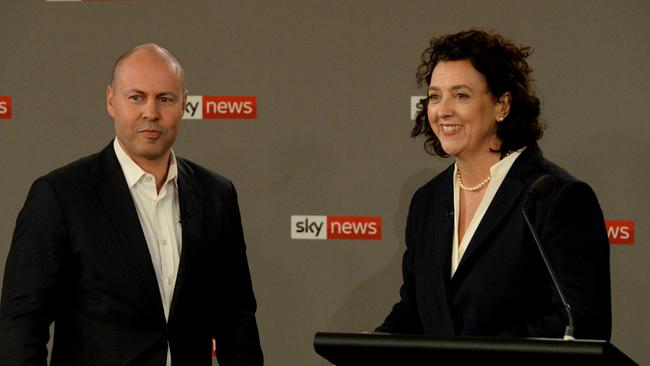
The remarkable feature of the so-called teal independents is their claim to integrity when it is their lack of integrity that is distinctive.
Australia faces the prospect of a change of government on a de facto alliance between the Labor Party and the anti-Liberal independents who run on a misrepresentation about their identity. This election is not just about who governs – Coalition or Labor – it is about a sustained revolt within the heartland that may politically decapitate the Liberal Party with long-run consequences for effective government in this country.
The independents seek not reform of the Liberals but their destruction as a governing force.
This is partly why the single most important contest in this election is in Kooyong with the Sky News debate this week featuring Josh Frydenberg and his independent rival, Monique Ryan. It was deeply revealing of the independent mindset.
The Morrison Government, Ryan said, is really a “minority government” – that’s because it is “hostage” to the Nationals, whose legitimacy she rejects. The Treasurer, she told us, is not a moderate. That’s because he didn’t cross the floor on climate change.
Her definition of being a Liberal moderate is crossing the floor against your own party, as distinct from working to shift the policy of your party as Frydenberg did.
Ryan, proving she could sledge as much as any party politician, attacked Frydenberg for being a treasurer for NSW, the only problem being the truth, with Frydenberg pointing out that his pandemic funding of Victoria was the highest in per capita terms given to any state.
Ryan had earlier attacked Frydenberg with the accusation “how do I know he’s not going to come after my kids” – in response to Frydenberg’s statement that a woman approached him in the street, said she was voting for him and that she was Ryan’s mother-in-law. Ryan resented what she felt was an intrusion into personal matters, but Frydenberg did not initiate any such exchange nor did he do anything to warrant her shameless retort: “What’s he going to do next – come after my kids?”
Such remarks in a tight election deserve attention only because the so-called independents claim to restore decency to politics. That is the basis on which Ryan seeks to eliminate Frydenberg from parliament. Sadly, Ryan is verifying an ancient axiom – once you run for politics you become a politician.
The Sky News debate revealed not just Ryan’s hostility towards the government but a progressivism far to the left of the Labor Party and more closely aligned with the Greens.
She wants a 60 per cent emission reduction target by 2030, far stronger than Labor; a full-blown anti-corruption commission; she attacks the border protection system; wants to ditch offshore processing; brands the treatment of refugees as “a shame to our country”; and complains the government mishandled our relations with China and then “weaponised” them. Her anti-Liberal essence is pervasive.
She said she was a member of the Labor Party over 2007-10 but left disillusioned with its stance on climate change, a position aligned with the Greens. Yet she declares she doesn’t have a policy on tax reform, saying that isn’t her job – when the sort of progressive tax policies she might vote for could prove unacceptable to many Kooyong voters. Having no tax policy is highly convenient. Is this integrity in action?
The independents refuse to nominate who they want to govern. Why bother to tell your electorate who you want to govern Australia? It’s only an election to determine that exact question. But understand the reason – this is about power. The purpose of the independents is to deny either party a governing majority. Their purpose is to empower themselves – the crossbench. That’s what the entire project is about – it’s about power.
Ryan was unequivocal in the Sky debate that in a hung parliament her decision about who to back would be determined by which party had the strongest position on climate change and the national integrity commission. But that is being disingenuous. If that’s your criteria, everybody in politics knows you will put Anthony Albanese into office.
But Ryan, like the other so-called independents, won’t say this. She won’t come clean. Why is that? Because to speak honestly would destroy her campaign. She can win only by persuading Liberal voters to switch and vote for her as an independent. If she says her criteria means a Labor government, then she loses Kooyong.
The success of her campaign rests on cultivating a deception. Every so-called independent uses the same formula. This is not an accident. It reflects a movement with a common tactic. Concealment of their core identity is their road to power. This is where they differ from the main parties. Their concealment aims to avoid their essential dilemma – trying to take seats from the Liberals they must parade their independence while deeply hostile to the Morrison government.
Their financial backer, Simon Holmes a Court, has been explicit about the objective, having declared that “the shortest and surest path to good government is a minority government with a quality crossbench”. Again, this is a quest for power. For Holmes a Court and his anti-Liberal independents a hung parliament is the threshold event – denied that they are reduced largely to gestures and the pretence to influence, impotent in any parliament with a majority government.
“We’ve seen the strength of minority government,” Holmes a Court has tweeted. He says Julia Gillard’s 2010-13 minority government worked “effectively and efficiently” with a “quality crossbench”. That’s the model. The independents say minority government would be good for the country; you don’t get more self-serving than that.
People have forgotten how Gillard was destroyed. This arose because in negotiations with the Greens and crossbench she agreed to a carbon pricing scheme that was contrary to her election mandate. Tony Abbott’s attack on Gillard was that “she destroyed the understanding on which she had been elected”. Exactly. The independents think integrity in politics is achieved by forcing minority prime ministers to ditch the letter of their mandates by making climate change concessions to them.
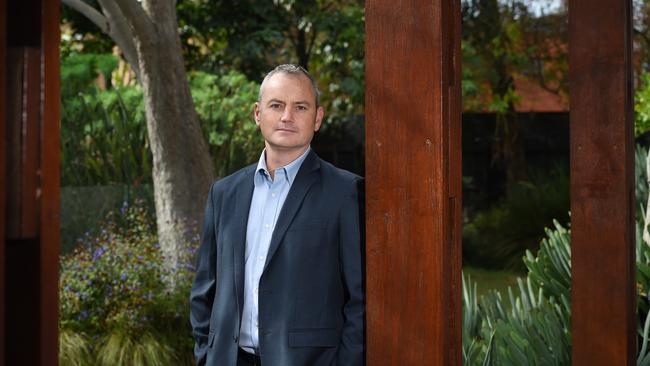
In fact, that only undermines the legitimacy of the government. Scott Morrison and Albanese know this. They know there is no evidence the public wants minority government, with the Gillard experience being the ultimate proof.
The further deception is the suggestion surrounding some of the independents that their election might provoke the Liberals into a transformation and stronger action on climate and progressive issues. Again, this is misrepresentation. The independents are not running against Barnaby Joyce, their real enemy. They are running against Liberal Party moderates who, if they really cared about the Liberal Party, they would support. The practical consequences, if they are successful, are that the moderates will be weaker in the party and the Liberals will have fewer seats in the parliament.
As the party’s elder statesman, John Howard says the independents run only against Liberals, not against any Labor MPs. They are Labor’s allies in this campaign. Launching Liberal MP Trent Zimmerman’s campaign in North Sydney, where he is being challenged by an anti-Liberal independent, Kylea Tink, Howard said: “If any one of these anti-Liberal groupies wins, we’re not going to form the next government.”
Appealing to Liberal voters, Howard said electing an independent in place of a Liberal “will play a major role in destroying the Liberal government”. Why does Howard keep hammering this obvious point? Because it’s not fully accepted or recognised. These candidates enjoy immense local support. They present as independents and are widely accepted as independents. But on the evidence, they are anti-Liberal independents or, as Frydenberg has called them, “fake independents”.
Moreover, they could yet make the difference in this election with the possibility that a Labor government might be elected based partly on the success of Holmes a Court-financed candidates and their sustained concealment of who they really are. If the public decides it wants a change then the best outcome would be a Labor government elected on its own merit with its own majority, devoid of any reliance on the new anti-Liberal independents.
For the independents the gulf between their integrity bidding and their deceptive posturing is probably unprecedented in our politics. Whether it is the Liberal, National, Labor or Greens parties, love them or hate them, you know who they are.
Another feature of the campaign is the way the independents conceal their positions. While not exactly the same, they are an organised movement running mainly on a tight formula of climate change, the integrity commission, justice for women and refusing to say which party they would back. This narrow cynical tactic is to maximise their vote.
Yet there are vast swathes of critical policy where most have stayed silent or have not been asked – for example, tax policy, budget repair, AUKUS, China, national security, industrial relations, NDIS reform, productivity and religious discrimination, among others. The independents seek to occupy the crossbench in a minority government with the public largely uninformed about their stances across wide areas of government.
Do they want China policy reassessed? Do they have reservations about the AUKUS deal? Do they support higher taxes to address the deficit? How do they respond to the inflation problem? Do they support or oppose an increase in the defence budget? Do they support or oppose new laws to protect religious freedom in this country?
Anybody who thinks the main preoccupation of the Australian government is climate change does not comprehend the first thing about government in this country – yet that is their fixation. There is a serious accountability problem here. Morrison and Albanese are held to account daily but not the independents.
They say their voters need a “stronger” voice in parliament. We are told that MPs such as Frydenberg, Dave Sharma, Tim Wilson, Zimmerman, Jason Falinski, Paul Fletcher and others are not actually representing their seats or the wishes of their electorates.
This is nonsense. The wishes of these electorates encompass far more than climate change. They extent to living standards, the economy, environment, tax, services and a host of other policies that sustain a full life.
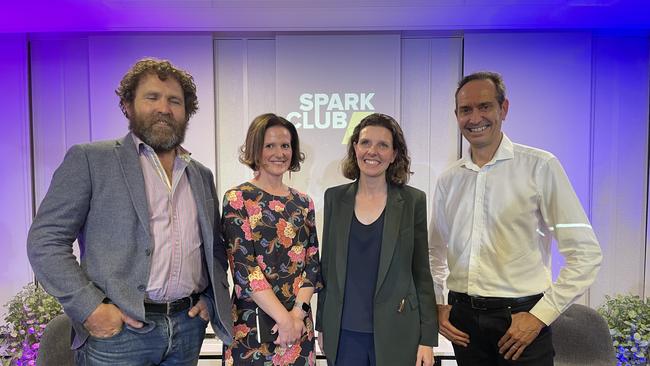
An infusion of progressive populists into the House of Representatives sounds exciting and transformative but the result will be a more fractured polity, a weaker government, a further decline in the capacity of parliament to pass genuine national interest laws and a shunning of any anything that smacks of tough reform.
The Liberal Party has much at stake. In Kooyong, the notion that Frydenberg as Treasurer and deputy leader – or as a future leader – is not in a better position to represent the overall interests of its electors in comparison to Ryan is a highly improbable proposition. Yet this election is defined by the improbable.
If voters across these blue-ribbon Liberals seats decide on a shift to independents, that will point to a long-run shift in the economic and cultural foundations of the Liberal Party.
How would these voters feel about terminating their influence in Coalition cabinets and being represented instead by independents who, outside of minority government, would have little or no influence in executive government? If the wealthy electorates marginalise themselves they will find the huge benefits they have enjoyed being marginalised in turn.
Have the anti-Liberal independents peaked? The government’s final hope is that the weight of incumbent stability will assist the threatened MPs – yet the counterargument is that Morrison’s character is damaged beyond repair in the party’s former heartland.
The anti-Liberal independents do represent different shades of opinion. Yet their unity as a movement is striking and dominant. They have promoted a fog of deception. But does the country have the eyes and brains to see through what is being offered?


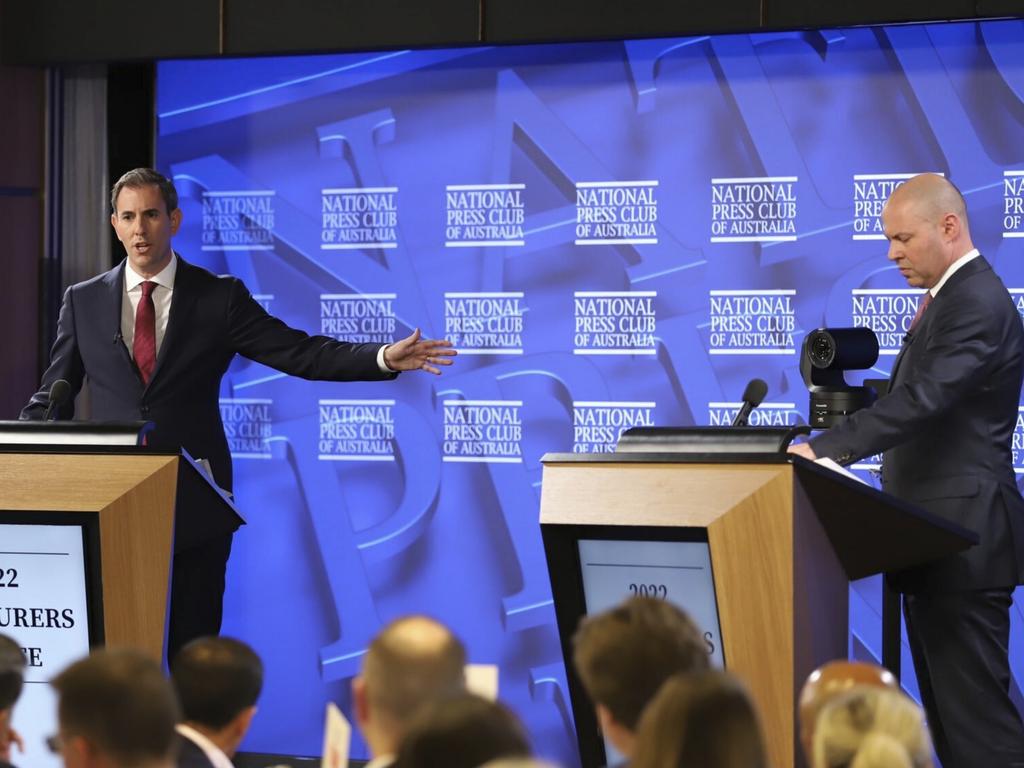
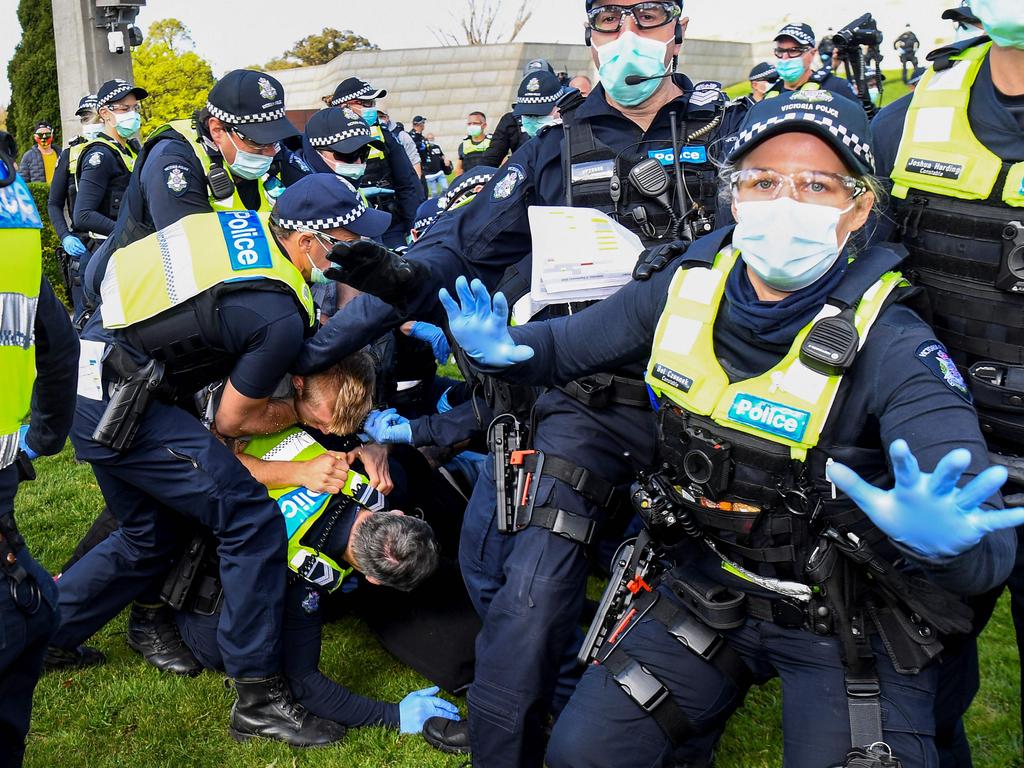
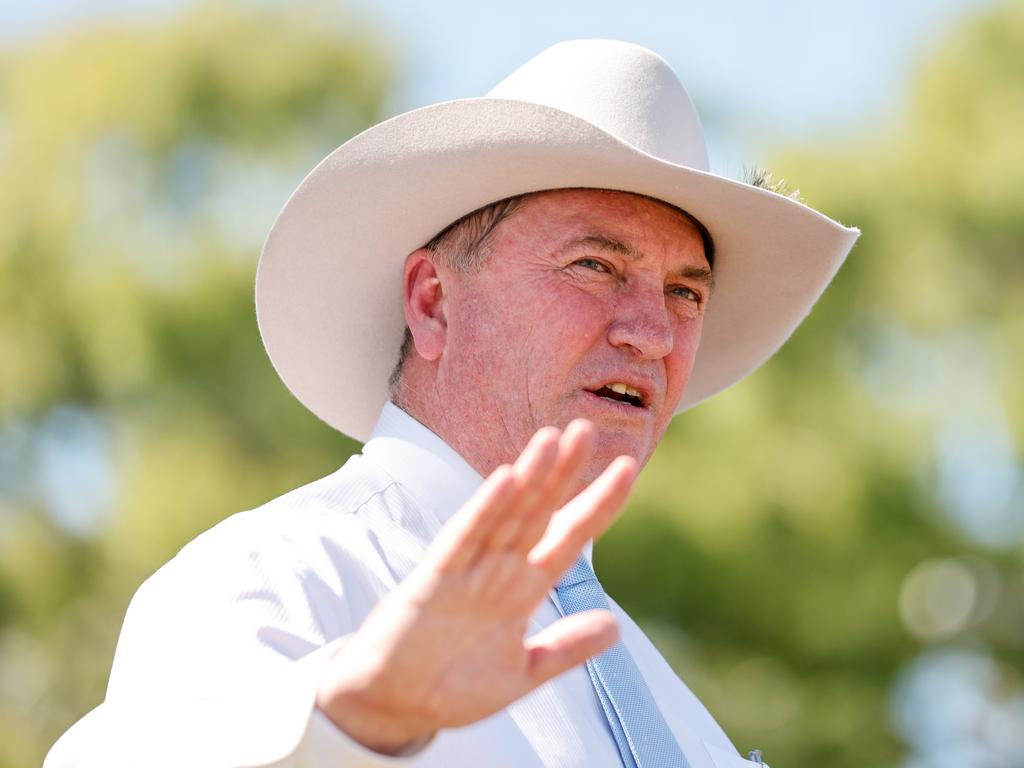



The first obligation of a political movement running candidates with real prospects of being elected and even determining the future government is to honour our democracy and voters by outlining their positions on the major issues and which party they prefer to govern Australia.